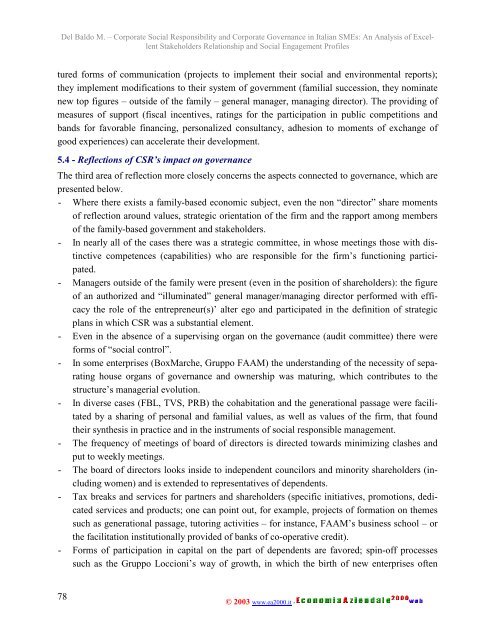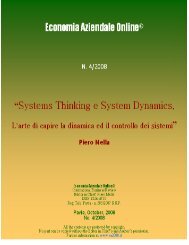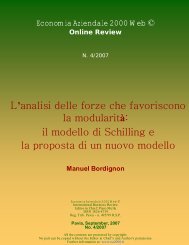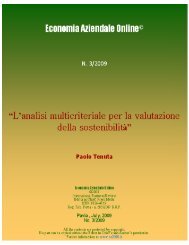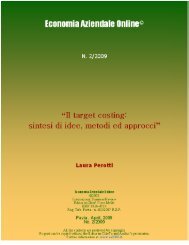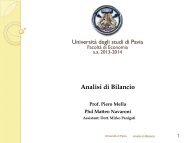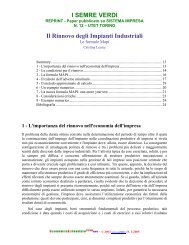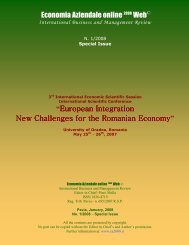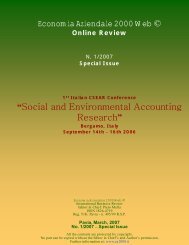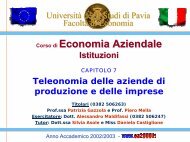Download this PDF file - Riviste
Download this PDF file - Riviste
Download this PDF file - Riviste
- No tags were found...
Create successful ePaper yourself
Turn your PDF publications into a flip-book with our unique Google optimized e-Paper software.
Del Baldo M. – Corporate Social Responsibility and Corporate Governance in Italian SMEs: An Analysis of ExcellentStakeholders Relationship and Social Engagement Pro<strong>file</strong>stured forms of communication (projects to implement their social and environmental reports);they implement modifications to their system of government (familial succession, they nominatenew top figures – outside of the family – general manager, managing director). The providing ofmeasures of support (fiscal incentives, ratings for the participation in public competitions andbands for favorable financing, personalized consultancy, adhesion to moments of exchange ofgood experiences) can accelerate their development.5.4 - Reflections of CSR’s impact on governanceThe third area of reflection more closely concerns the aspects connected to governance, which arepresented below.- Where there exists a family-based economic subject, even the non “director” share momentsof reflection around values, strategic orientation of the firm and the rapport among membersof the family-based government and stakeholders.- In nearly all of the cases there was a strategic committee, in whose meetings those with distinctivecompetences (capabilities) who are responsible for the firm’s functioning participated.- Managers outside of the family were present (even in the position of shareholders): the figureof an authorized and “illuminated” general manager/managing director performed with efficacythe role of the entrepreneur(s)’ alter ego and participated in the definition of strategicplans in which CSR was a substantial element.- Even in the absence of a supervising organ on the governance (audit committee) there wereforms of “social control”.- In some enterprises (BoxMarche, Gruppo FAAM) the understanding of the necessity of separatinghouse organs of governance and ownership was maturing, which contributes to thestructure’s managerial evolution.- In diverse cases (FBL, TVS, PRB) the cohabitation and the generational passage were facilitatedby a sharing of personal and familial values, as well as values of the firm, that foundtheir synthesis in practice and in the instruments of social responsible management.- The frequency of meetings of board of directors is directed towards minimizing clashes andput to weekly meetings.- The board of directors looks inside to independent councilors and minority shareholders (includingwomen) and is extended to representatives of dependents.- Tax breaks and services for partners and shareholders (specific initiatives, promotions, dedicatedservices and products; one can point out, for example, projects of formation on themessuch as generational passage, tutoring activities – for instance, FAAM’s business school – orthe facilitation institutionally provided of banks of co-operative credit).- Forms of participation in capital on the part of dependents are favored; spin-off processessuch as the Gruppo Loccioni’s way of growth, in which the birth of new enterprises often78© 2003 www.ea2000.it -


